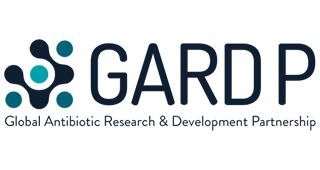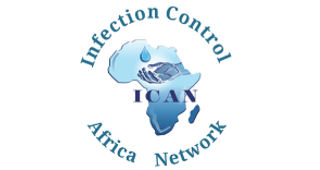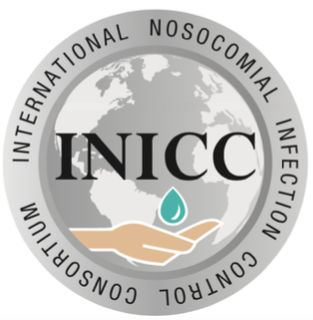 |
|
Maximum: 1 CME cr.,
1 AutoAttendance cr.
Sign in to view your progression
|
Activity Title: Defeating Meningitis by 2030: the Need for Global Invasive Meningococcal Disease Surveillance and Prevention
Release Date: April 22, 2021
Estimated Time to Complete Activity: 70 minutes
Statement of Need:
Meningococcal meningitis is a devastating disease with high mortality and long-term sequelae even in successfully managed cases. Although the burden of disease is greatest in the meningitis belt of sub-Saharan Africa, meningitis is a world-wide threat. Recent epidemics in Liberia, Nigeria, Togo, Niger, Guinea, Kyrgyzstan, Fiji and Chile and the spread of some virulent strains across the world has emphasized the need for a global approach to surveillance and prevention.
In this session, experts will discuss the urgent need for improved monitoring of invasive meningococcal disease and sequelae globally, will discuss the use of whole genome sequencing, strain typing and rapid diagnostics to better understand outbreak epidemiology and burden of disease and will provide updates on the emergence of new clones and hypervirulent strains. They will review WHO’s recently released Defeating Meningitis by 2030 Global Roadmap and what it will take to make vaccines widely available in low- and middle-income countries.
The clinical presentations of meningococcal disease can vary. Recent observations suggest that certain serogroups may present with atypical signs and symptoms such as acute gastrointestinal symptoms, septic arthritis, bacteremic pneumonia or severe upper respiratory infection. Experts will discuss atypical clinical presentations which can be associated with higher case fatality rates and misdiagnoses. The immediate and longer-term impact of COVID-19 on meningococcal disease and meningococcal vaccine schedules is currently unclear and needs to be determined.
Faculty:
Professor Kwambana-Adams
Brenda Anna Kwambana-Adams is a Research Associate in Bacterial Pathogenesis and Genomics at the NIHR Global Health Research Unit on Mucosal Pathogens at University College London. She is also the Deputy Head of the WHO Collaborating Centre for New Vaccines Surveillance (WHO CC NVS)
Prof. Marco Aurélio P. Sáfadi
Prof. Sáfadi is the Head of the Department of Pediatrics and the Coordinator of the Post-graduation course on Health Sciences at Santa Casa de São Paulo School of Medicine, and for more than 10 years has been working as a Member of the Permanent Advisory Board on Immunization Practices for the State of São Paulo and for the Ministry of Health in Brazil. He is currently the Chairman of the Department of Infectious Diseases for the Brazilian Society of Pediatrics.
Technical Requirements
This site and its activities are best viewed using the latest versions of the Chrome, Edge, Firefox and Safari browsers. For interactive content a broadband connection is required. For CME/CE activities featuring audio you need a sound card and speakers.
Our activities may require JavaScript to be enabled on your computer. If you are having difficulty viewing pop-up windows, click here for instructions on enabling JavaScript.
Contact Information
If you have questions about this CME activity, please contact The International Society for Infectious Diseases at info@isid.org.
For technical support issues, please contact Multilearning at support@multilearning.com
Upon completion of this module, participants should be able to:
- Understand the mortality and long-term sequelae even in successfully managed Meningococcal meningitis cases.
- Recognize that meningitis is a world-wide threat.
- Articulate the need for a global approach to surveillance and prevention.
- Describe the urgent need for improved monitoring of invasive meningococcal disease and sequelae globally
- Discuss the use of whole genome sequencing, strain typing and rapid diagnostics to better understand outbreak epidemiology and burden of disease
- Describe the emergence of new clones and hypervirulent strains.
- Discuss WHO’s recently released Defeating Meningitis by 2030 Global Roadmap and what it will take to make vaccines widely available in low- and middle-income countries.
- Recognize the various clinical presentations of meningococcal disease, and be aware that certain serogroups may present with atypical signs and symptoms such as acute gastrointestinal symptoms, septic arthritis, bacteremic pneumonia or severe upper respiratory infection
- Recognize atypical clinical presentations which can be associated with higher case fatality rates and misdiagnoses
- Discuss the immediate and longer-term impact of COVID-19 on meningococcal disease and meningococcal vaccine schedules is currently unclear and needs to be determined.
The target audience for this module is physicians, nurses, public health officials, microbiologists, and other health professionals.
WHO - Defeating meningitis by 2030: a global road map
https://www.who.int/publications/m/item/defeating-meningitis-by-2030-a-global-road-map
Africa CDC - Meningococcal Meningitis
https://africacdc.org/disease/meningococcal-meningitis/
Atypical presentation of invasive meningococcal disease caused by serogroup W meningococci
https://www.ncbi.nlm.nih.gov/pmc/articles/PMC7019474/
Global Meningococcal Initiative - A worldwide expert group raising awareness and helping prevent invasive meningococcal disease
https://www.meningitis.org/our-work/action-and-support/global-meningococcal-initiative
MenAfriNet – An international network of partners in support of quality meningitis
https://www.menafrinet.org
Disclosure Policy
In accordance with the EACCME Standards for Commercial Support, the International Society for Infectious Diseases (ISID) requires that individuals in a position to control the content of an educational activity disclose all relevant financial relationships with any commercial interest. ISID resolves all conflicts of interest to ensure independence, objectivity, balance, and scientific rigor in all our educational programs. Furthermore, ISID seeks to verify that all scientific research referred to, reported, or used in a CME/CE activity conforms to the generally accepted standards of experimental design, data collection, and analysis. ISID is committed to providing learners with high-quality CME/CE activities that promote improvements in health care and not those of a commercial interest.
Activity Staff Disclosures:
The planners, reviewers, editors, staff, or other members at the International Society for Infectious Diseases who control content have no relevant financial relationships to disclose.
ISID Knowledge Exchange and E-Learning Platform Organizing Committee members are listed here along with Committee members’ disclosure forms.
Faculty Disclosures:
Professor Brenda Anna Kwambana-Adams has no actual or potential conflict of interest in relation to this program/presentation
Marco Aurélio P. Sáfadi:
Grants/Research Support: Funding from Pfizer, GSK, Sanofi-Pasteur
Honoraria/Consultation fees: Funding from Pfizer, GSK, Sanofi-Pasteur
Speakers Bureau: Funding from Pfizer, Sanofi-Pasteur
Moderator Disclosures:
Rob Heyderman and Christina Obiero have no actual or potential conflict of interest in relation to this program/presentation
Disclosure of Unlabeled Use
The International Society for Infectious Diseases requires CME faculty (speakers) to disclose when products or procedures being discussed are off label, unlabeled, experimental, and/or investigational, and any limitations on the information that is presented, such as data that are preliminary, or that represent ongoing research, interim analyses, and/or unsupported opinion. Faculty in this activity may discuss information about pharmaceutical agents that is outside of US Food and Drug Administration approved labeling. This information is intended solely for continuing medical education and is not intended to promote off-label use of these medications. ISID does not recommend the use of any agent outside of the labeled indications. If you have questions, contact the Medical Affairs Department of the manufacturer for the most recent prescribing information.
Disclaimer
The International Society for Infectious Diseases presents this information for educational purposes only. The content is provided solely by faculty who have been selected because of recognized expertise in their field. Participants have the professional responsibility to ensure that products are prescribed and used appropriately on the basis of their own clinical judgment and accepted standards of care. The International Society for Infectious Diseases, and the former commercial supporter assume no liability for the information herein.
Copyright Information
Copyright © 2021 by the International Society for Infectious Diseases. Any unauthorized use of any materials on the site may violate copyright, trademark, and other laws. You may view, copy, and download information or software ("Materials") found on the Site subject to the following terms, conditions, and exceptions:
• The materials are to be used solely for personal, noncommercial, informational and educational purposes. The materials are not to be modified. They are to be distributed in the format provided with the source clearly identified. The copyright information or other proprietary notices may not be removed, changed, or altered.
• Materials may not be published, uploaded, posted, transmitted (other than as set forth herein), without the International Society for Infectious Diseases' prior written permission.
Privacy Policy
The International Society for Infectious Diseases protects the privacy of personal and other information regarding participants and educational collaborators. The International Society for Infectious Diseases will not release personally identifiable information to a third party without the individual's consent, except such information as is required for reporting purposes to the ACCME.
The International Society for Infectious Diseases maintains physical, electronic, and procedural safeguards that comply with federal regulations to protect against the loss, misuse, or alteration of information that we have collected from you.
Additional information regarding the International Society for Infectious Diseases Privacy Policy and ISID’s Knowledge Exchange and E-Learning Platform Privacy Policy can be viewed at https://isid.org/privacy-policy/ and https://exchange.isid.org/isid/legal/terms-and-conditions.
|
ACCREDITED ACTIVITY
Defeating Meningitis by 2030: the Need for Global Invasive Meningococcal Disease Surveillance and Prevention
|
|







